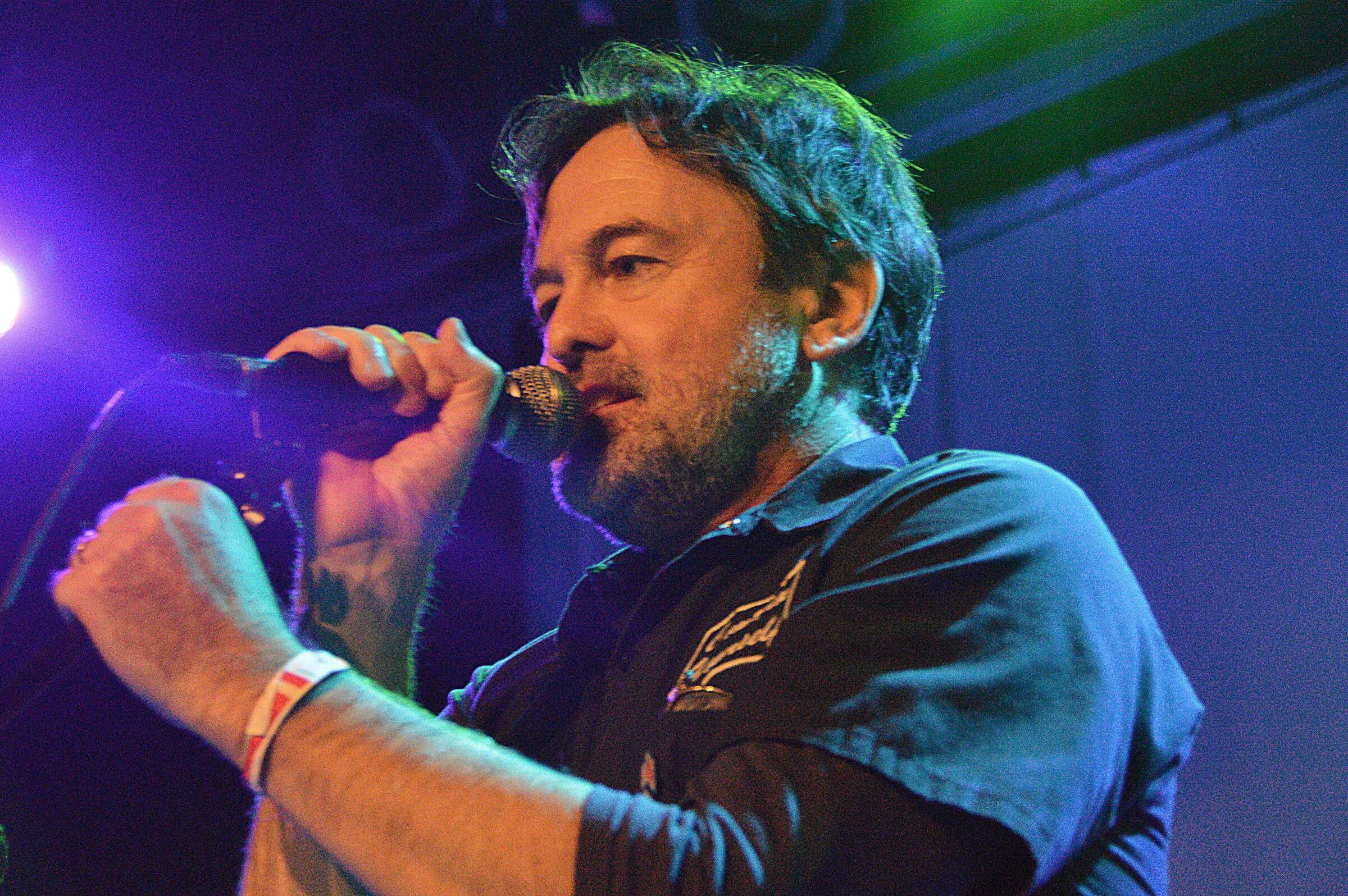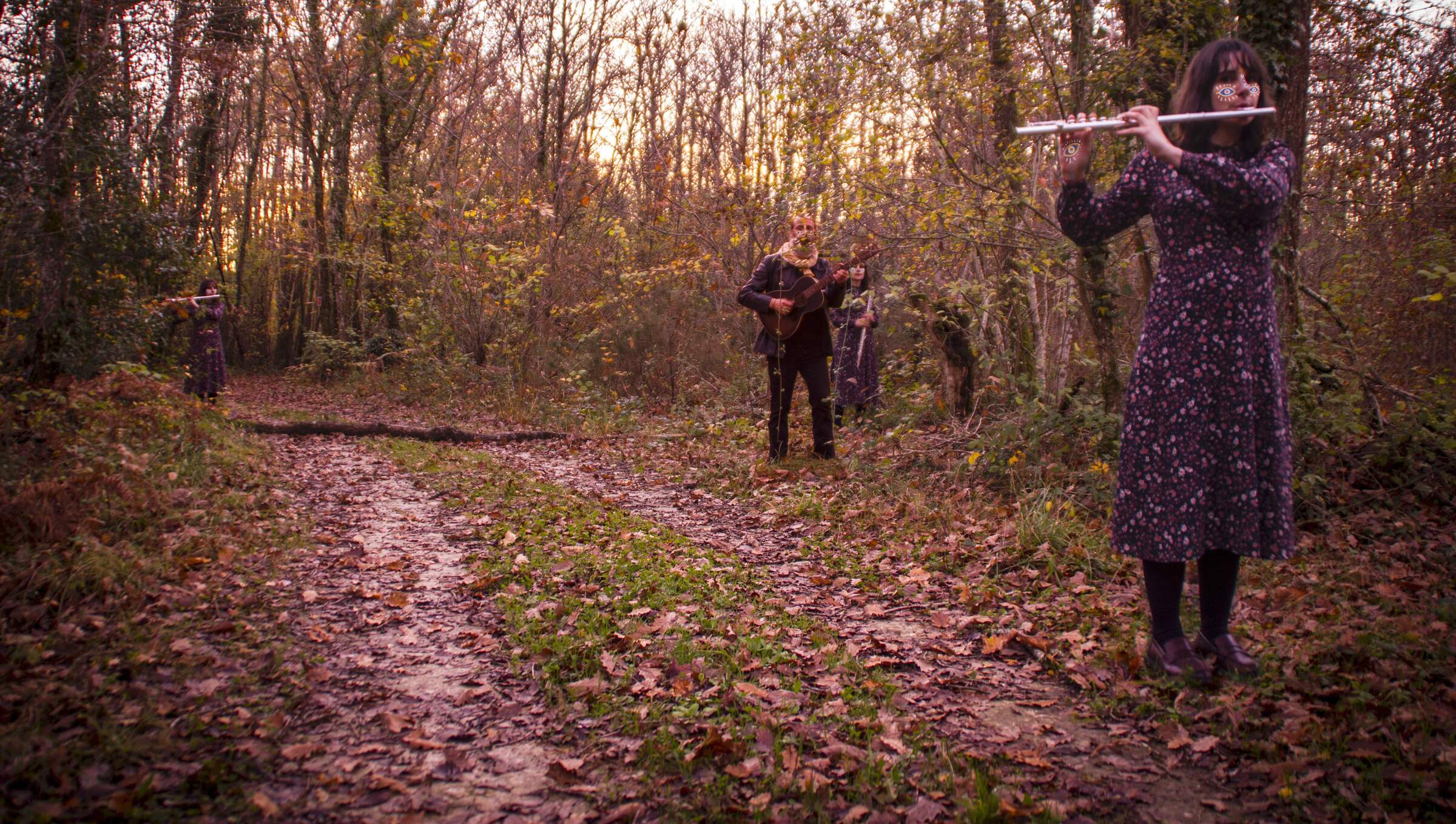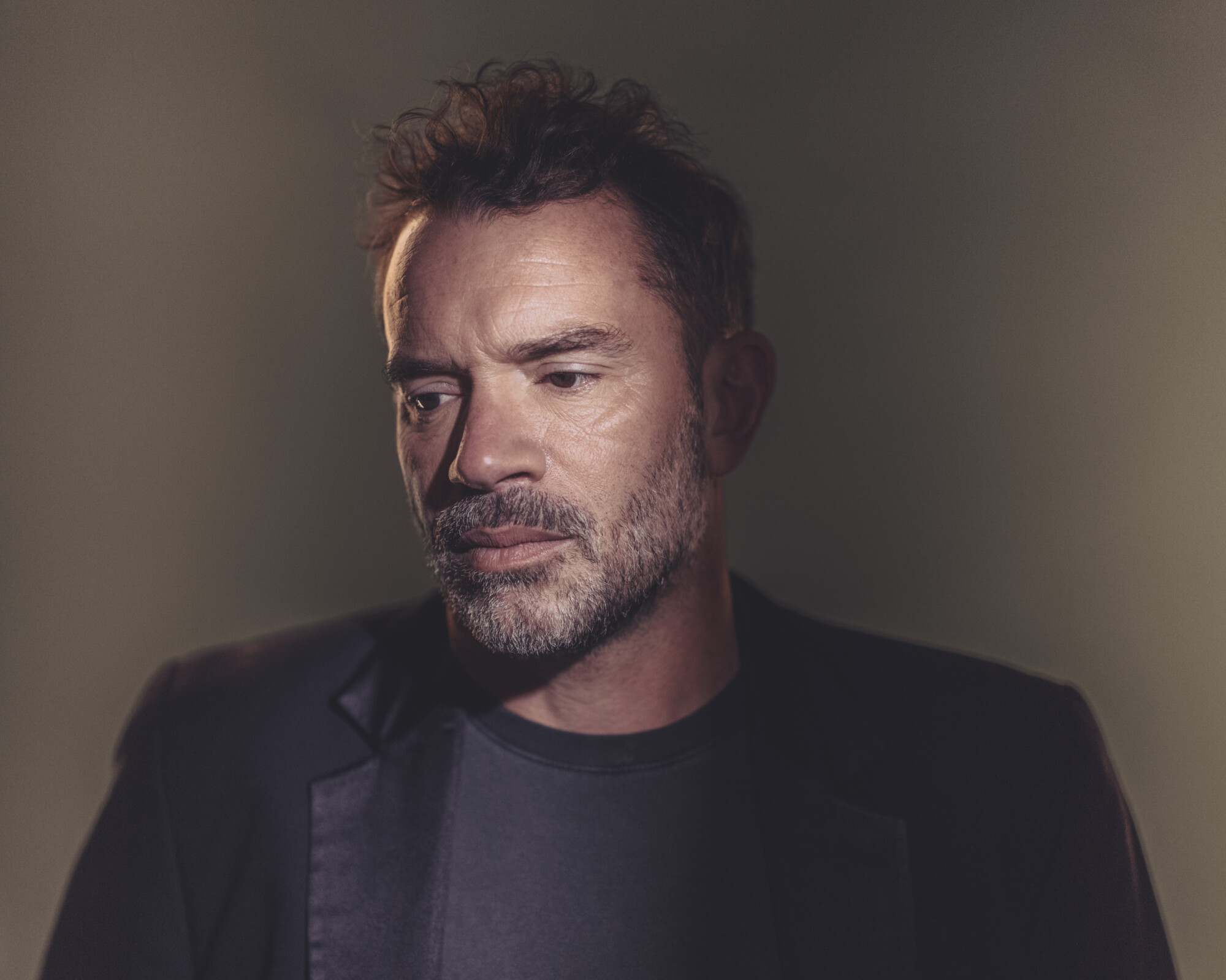Richard Davies | the moles | Interview
Richard Davies has played an influential yet understated role in the alternative music scene since the ’90s.
He’s the kind of songwriter who’s revered by other musicians, with fans like Kurt Cobain, the Flaming Lips, Robert Pollard of Guided By Voices, and Gruff Rhys of Super Furry Animals. Davies even went on tour with The Flaming Lips, and he and Pollard released a collaborative album as Cosmos in 2009. This year, he’s gearing up for the moles shows—the last one being a wild New Year’s Eve gig in 2017-18 with Guided By Voices at the Williamsburg Hall of Music. Davies’s journey through music has taken him across different continents and genres, offering a unique blend of raw underground vibes and polished chamber-pop tones, which reflects his fearless approach to making music.
The moles are playing a couple rare shows with Guided By Voices on their summer tour this June.
June 21 – Irving Plaza w/ Guided By Voices
June 22 – Royale Theater w/ Guided By Voices
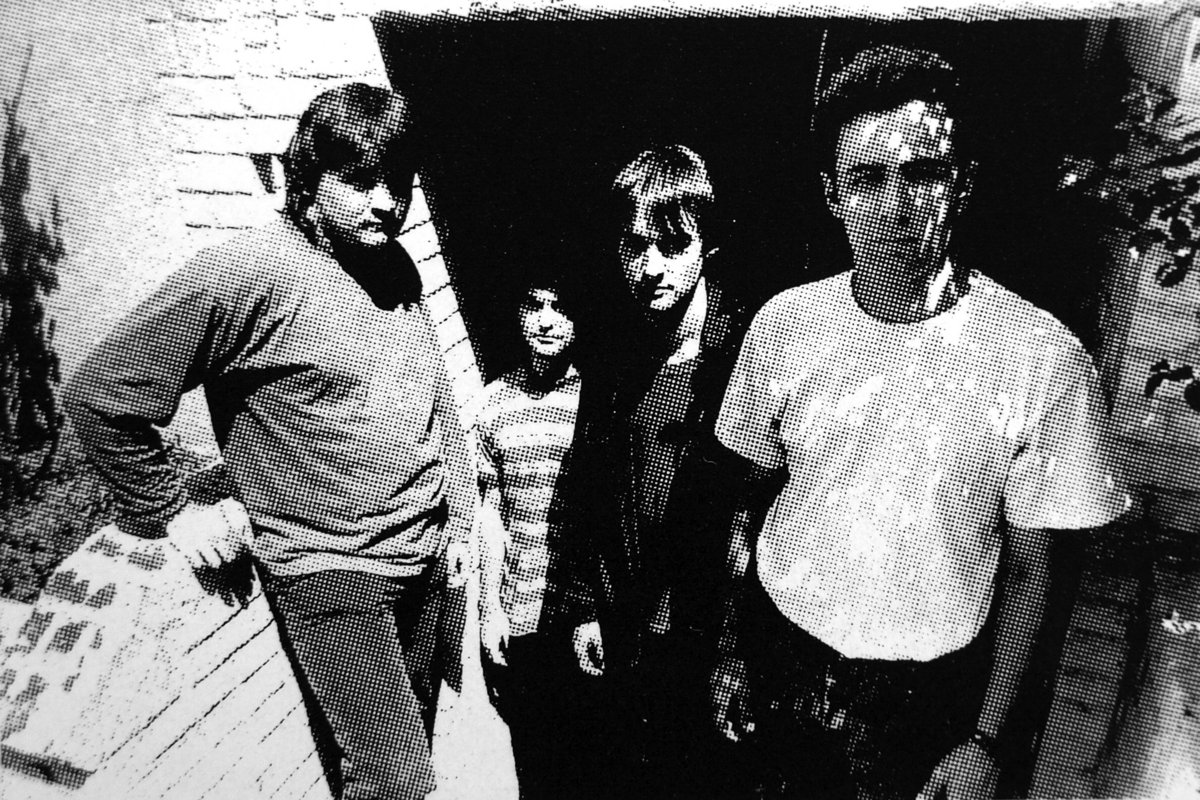
“I’m careful to remain myself at all times”
You’ve had a remarkable journey through the music industry, from your early days with the moles to collaborations with artists like Robert Pollard and your recent work with the moles. How has your approach to creating music evolved over the years?
Richard Davies: When I was a young guy, I had more time on my hands, so I could sit on the floor surrounded by paper with a guitar and daydream and fumble about all day figuring out a song. As an old hand, I don’t have the luxury of doing that, so I tend to have my antennae up most of the time to what is happening around me. I scribble chicken-scratch notes to myself, throw them in my bag, and collect them, then inventory them later. Same with the music side—I tend to throw ideas down wherever and whenever and save them up until I have a little window of time to mix ‘n’ match the randomness into something that resembles a song.
How do you navigate between these diverse genres while maintaining a cohesive sound that’s uniquely your own?
I’m careful to remain myself at all times! I have a restless mind. I’ve never cared about catering to whatever current popular taste is. I just do my own thing. To stick with the navigation analogy, my compass is my conscience. Not in a moral sense, but in the sense of whether a particular song or sound makes sense to me at a particular moment. If it does, I go with it and leave it alone. As I get older, I also feel that your sound is comprised of your voice, whether or not you’re aware of it or want it. I’ve always enjoyed making records—the whole experience, rather than just being a specialist in singing or playing an instrument. I’m curious about sound, but I have certain predilections that are mostly controlled by my limitations. I feel that I’m on a journey that, for now, I’m still interested in, and I feel that making music with other people is a precious gift.
You’ve collaborated with a wide range of artists throughout your career, from The Flaming Lips to Guided By Voices. What have you learned from these collaborations, and how have they influenced your own musical style and approach?
Chaos is welcome. It’s not so much the practical mechanics of writing a song or making a record that the people I’ve had contact with affect. It’s more simply the experience of being around people and getting a sense of how they think and how they see the world. It’s nothing specific; it’s just a feel. I can’t calculate what that is. I think the people you make music with, their personalities, have a subtle effect that outlasts any physical proximity. I do think that you can quickly get a sense of what will and won’t work based on a particular musician’s personality.
Your latest album, ‘Code Word,’ was recorded with members of the moles scattered across different cities. Can you tell us about the creative process behind this album and how the distance impacted the recording and production?
The moles in different cities were already units (or cells), so it wasn’t too hard to parachute into the situations. My job is easy in the sense that I’ve usually written a song first or at least sketched it out. The trick, and the pleasure, is letting the players play. I’ve made records where everything has been very precisely planned or arranged, and I’ve made some where I let the players express themselves, and it’s unnecessary to give much direction. For the most part, these are psych/punk affairs, so my input, certainly on the Code Word record, comes from the words and the subjects of the songs, and the musicians just play how they play, as themselves. Most of all, I just found the whole experience very interesting.
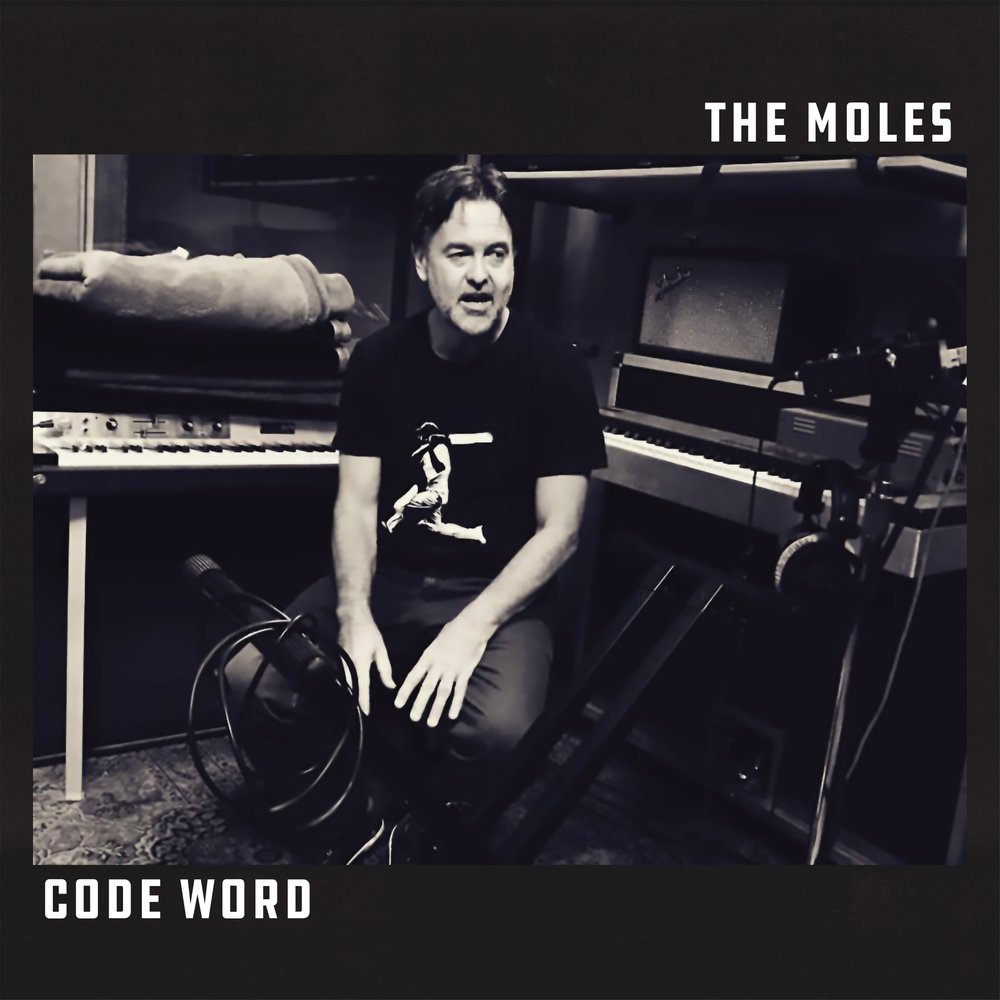
Your show at the Knitting Factory in New York City marks the first moles performance in seven years. What can fans expect from this rare live performance, and how does it feel to be back on stage after such a hiatus? [Editor’s Note: Interview conducted on March 30, 2024.]
I’m playing with an NYC-based band called Free Time: Dion Nania (guitar and vocals), Mike Mamoun (drums), and Jonah Maurer (guitar, keyboards, and vocals). They’ve been a unit for many years. We recorded together on some songs for the ‘Tonight’s Music’ record about seven years ago. Not that you’d know because that album had no credits! It was like a found object! We recorded during a huge snowstorm in New York City. I very much liked how those songs (‘Dreamland,’ ‘Beauty Queen of Watts,’ ‘Damien Lovelock,’ ‘Chills’) sounded. We’ll play those songs, as well as some old ones, at the Knitting Factory in early April and at the Guided By Voices shows in June.
Your life has taken you from Sydney to London to Boston and beyond. How have these different environments and experiences shaped your music and lyrical themes?
I think they created certain musical and lyrical themes. I had no particular plan for my life to have taken the direction it has. I like to write about what is around me, so having traveled a lot, the environments I’ve been in, occasionally, have been kaleidoscopic, which I suppose is appropriate with regard to a magazine such as yours.
As someone who has balanced a career in law with a passion for music, how do you find balance between these two worlds? And how does your experience as a trial attorney influence your approach to songwriting and performing?
Balance: With regard to balancing the two, sometimes there is none! I tend to throw scraps of paper into my law bag and toss them in a pile, then dig into them later when I need to pivot to finishing a song, because ideas can come from all over, all the time.
Trial work/music: I’m a far less sensitive person than when I was younger, but in a constructive way. You need a very thick skin to conduct a trial. You need to have an agile mind. You need a lot of discipline, a lot of patience, and a lot of mental stamina. Trials involve swathes of boredom and waiting mixed with moments of pure terror, some of which can be predicted, some which cannot. All of that is very helpful for the creative side of my personality.
Performing: I’ve rarely played an instrument live over the last few years. I prefer to travel light, and I feel more involved with the audience just singing and having a wonderful chat. That probably springs from spending a lot of time on my feet in courtrooms.
Your lyrics often contain introspective themes and personal reflections. Can you share some insights into your songwriting process and where you draw inspiration for your lyrics?
The first Cardinal album was some kind of voyage into feeling. It took most of my twenties to be able to articulate those feelings musically. These days, I don’t get the sense that my lyrics are introspective. They’re more based on observation of other people and events and situations outside of myself. Actually, I feel that my approach to lyrics has been changing over the last ten years. I’ve become more like my own personal AI, automatically spitting out impressions, then cultivating those impressions later, when there’s some time to reflect on them. If AI just takes over, I suppose it shall be sad, but then I won’t have to bother.
“Allowing a certain degree of chaos to exist”
The moles’ debut album, ‘Untune the Sky,’ released in 1991, became such an influential album. What were some of the inspirations behind the sound and themes explored in this album?
Making a mess of my personal relationships in my early and mid-twenties. Allowing a certain degree of chaos to exist. Not necessarily encouraging it, but if the chaos meter went up, I didn’t come to grips with it in order to right the ship. I was more, I suppose, bemused by turbulent, erratic relationships and situations, and used them as fodder for my romantic nature. I’m not sure, at the time, I was capable of anything else. I was a sensitive young chap, also a selfish and thoughtless asshole. I was excited by life, though. I think I was so excited by life that I couldn’t help writing about it. It was the only way to process it. I also loved the cottage industry aspect of songwriting—that it came from close quarters, like making pottery or knitting or painting, or writing a book.
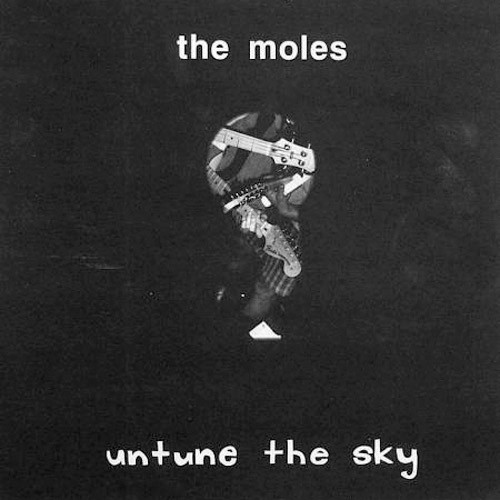
The moles’ journey from Sydney to London in the early ’90s marked a significant turning point in the band’s career. What were some of the challenges and highlights of this transition, and how did it impact the band’s sound?
Well, it impacted the moles’ sound by ending it in its initial form. My friends from Australia harkened to reality fairly quickly and thought it best to head back. For me, it was like springboarding into the world. The songs on ‘Instinct’ and ‘Cardinal’ probably couldn’t have been played by the initial moles lineup, and they may not have wanted to play them. Putting myself out there, out into the world, revved up my imagination.
Is there an album that has profoundly affected you more than others?
I just did what you apparently do these days and put together a playlist for Spotify and my website. I had to do it quickly on no notice. So for now, as of today, there’s no particular album that affects or affected me more than others, but I can say that some of the songs on the playlist are:
‘Expecting to Fly’ — Buffalo Springfield
‘Hey Luciani’ — The Fall
‘Ballroom Blitz’ — The Sweet
‘Wings of a Nightingale’ — The Everly Brothers
‘A Certain Kind’ — The Soft Machine
‘U.S. Mustard Co.’ — Robert Pollard
‘Dusty in Here’ — The Go-Betweens
‘Ace of Spades’ — Motörhead
‘Wild Is the Wind’ — David Bowie
‘Mr. Farmer’ — The Seeds
Have you found something new lately you would like to recommend to our readers?
Well, I like the music and the people of Free Time, and I like the new Black Crowes song ‘Wanting and Waiting’ because, er, it’s good. It has a good riff, which I believe Rich Robinson (subconsciously) stole from me. Hahaa!
What are some future plans?
Picking up from an earlier question, my sense is that I’d like to record some more with Free Time. Their sensibilities are similar to mine. I also enjoy being in New York. I find it invigorating intellectually, creatively, and energy-wise. Also, those guys are easy to be around.
I just finished a secret record. Secret in the sense that, well, moles are spies, and I made it entirely at home with some help from my marvelous friend Malcolm Travis (Human Sexual Response, the Zulus, Sugar), and a technical savant and citizen of the world, Sue Metro, who both live on the Cape near me. Sue is an interesting person. She has a bird she rescued called Stevie. She worked for years with physicists and astronomers at Brown University and was a tech advisor to Tom Scholz of Boston, who apparently invented his own guitars/amps/sound system, and no one else knew how it operated. She was a sound guru (yes, that word) at Kurzweil and was involved in testing early guitar pedals, but she did it all on instinct. She just has a way with the tech aspect of sound—I do not! She also has four yellow jumpsuits from Devo in her bedroom wardrobe, which kind of makes total sense. Maybe that record will come out at some point.
Thank you. Last word is yours.
Thank YOU!
Klemen Breznikar
Headline photo: Richard Davies of the moles | Photo by Dean Keim
Richard Davies Official Website / Facebook

